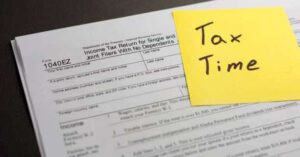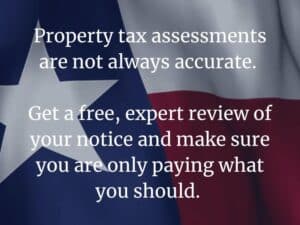Property taxes can be one of the largest ongoing costs for both homeowners and commercial property owners. If your property is overvalued by your local appraisal district, you may be paying significantly more than you should. The good news is that a property tax consultant can help you challenge unfair assessments and potentially save you thousands of dollars. This guide explores how hiring a property tax consultant can lead to substantial savings, what they do, and why it’s a smart financial decision.
Why Property Taxes Can Be Higher Than They Should Be
Property taxes are calculated based on your property’s assessed value, as determined by your local appraisal district. Ideally, this value should reflect the property’s fair market value. However, assessment districts sometimes rely on outdated information, generalized models, or incomplete data—leading to inflated valuations.
For example, if your home has structural issues or outdated features that reduce its market value, but these aren’t considered in the assessment, you could be overpaying. The same applies to commercial properties that may be assessed using incorrect building specs or zoning data. A property tax consultant can uncover these discrepancies and advocate for a fairer valuation.
What a Property Tax Consultant Does
A property tax consultant specializes in navigating the complex property tax system. They are experts in tax regulations, real estate market trends, and local appraisal procedures. Their goal is simple: ensure your property is assessed accurately so you don’t overpay in taxes. Here’s how they work:
1. Assisting with the Protest Process
Filing a property tax protest can be complicated. A consultant will explain the steps involved, prepare the required documentation, and ensure you understand important deadlines—usually within 30 to 45 days of receiving your appraisal notice.
2. Filing Your Protest Accurately and On Time
Mistakes in paperwork or missed deadlines can cost you the chance to lower your tax bill. Consultants ensure your protest is submitted correctly and before the deadline.
3. Gathering and Evaluating Property Data
A strong appeal starts with solid data. Your consultant will collect records, sales comparisons, photos, and repair estimates to support your case. They’ll also review the appraisal district’s data to spot errors—such as incorrect square footage or missed exemptions.
4. Creating a Market-Based Argument
Consultants use recent sales of comparable properties to show what your home or commercial property is really worth. They also consider trends like gentrification or market shifts that could influence property values in your neighborhood.
5. Representing You at the Review Board Hearing
If your case goes to an Appraisal Review Board (ARB) hearing, your consultant can represent you. They’ll organize your evidence, present your argument professionally, and handle any questions from the board.
The Financial Benefits of Hiring a Consultant
The goal of hiring a consultant is to lower your property’s assessed value, which directly reduces your tax bill. Here’s how the savings can add up:
- Reduced Taxable Value: For example, if your home’s value is lowered from $400,000 to $350,000 with a 2% tax rate, that’s a $1,000 annual saving.
- Savings Over Time: Lower assessments can reduce your taxes for future years since future valuations often build on previous ones.
- Maximized Exemptions: A consultant may find exemptions you didn’t know about—like senior citizen or homestead exemptions.
- Avoided Penalties: They help ensure timely filings, avoiding late fees or lost opportunities.
Real-World Scenarios
Here are two examples to show how much you could save:
- Homeowner Example: Jane owns a home assessed at $500,000, but her consultant finds it’s only worth $450,000. With a 2.5% tax rate, she saves $1,250 per year.
- Business Example: Mike owns a commercial property valued at $2 million. His consultant corrects an error, bringing it down to $1.8 million. At a 3% rate, that’s a $6,000 yearly saving.
Why Not Just Do It Yourself?
While it’s possible to file a protest yourself, here’s why hiring a consultant is often the better choice:
- Expert Knowledge: They understand how to build a compelling case using accurate data and legal frameworks.
- Time Efficiency: Consultants handle the research, paperwork, and presentation, saving you countless hours.
- Better Results: With professional help, you’re more likely to get a favorable outcome.
- No Upfront Fees (In Many Cases): Many work on a contingency basis—meaning they only get paid if they win your case.
How to Choose the Right Property Tax Consultant
To get the most value, look for:
- Credentials & Certifications: Check for professional affiliations or licenses.
- Local Experience: Choose someone familiar with your county’s appraisal practices.
- Transparent Fees: Ask whether they charge a flat rate or work on contingency.
- Client Reviews: Look for testimonials and ask for references.
Debunking Common Myths
- “Consultants are expensive”: Many only charge if they save you money.
- “I’ll end up paying more if I protest”: That’s false—your assessed value can only go down or stay the same.
- “It’s easy to do on my own”: While it’s possible, success rates are often higher with professional help.
Take Action Today
The first step is to review your most recent property appraisal. If it seems too high or doesn’t reflect your home’s true condition, consult a property tax expert. Many offer free initial evaluations, so there’s little risk in exploring your options.
Hiring a property tax consultant isn’t just about saving money this year—it’s about making sure you’re treated fairly and not overpaying in the years to come. With expert support, the process is far less stressful and far more likely to succeed.
Disclaimer: Property tax laws vary by location. Always consult with a licensed professional to understand your rights and options.






